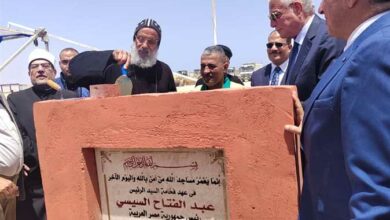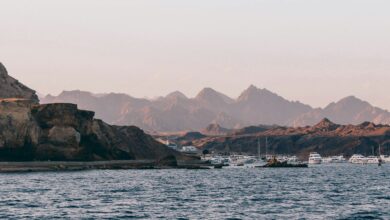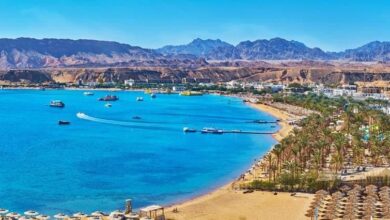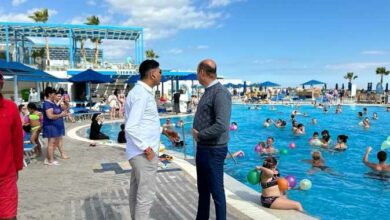SHARM EL-SHEIKH — On a barren hill in Sharm el-Sheikh, not far from the famous beach resorts with their bikini-clad patrons, Islamist activist Ahmed Saber ponders the fate of revealing swimwear if his party comes to power.
The swimsuit has been at the center of a growing debate over the Islamists' plans for tourism, one of Egypt's key currency earners.
Speaking to AFP at a voting station, Saber seeks to present a liberal outline of his party's position on the bikini. "You're free to do as you please as long as you don't harm me," he says.
The Sharm el-Sheikh tour guide then goes on to explain that: "Some sights might harm me. For example, women wearing bikinis on the street. There are special places for bikinis."
After decades of repression by a secular police state, the Muslim Brotherhood finds itself fending off questions about its plans for beach resort mainstays like bikinis and alcohol — considered un-Islamic by some.
With ultra-conservatives poised to play a big role in parliament during an economic crisis, the Islamists' thoughts on what tourists may wear or drink are being scrutinized amid fears they will harm the country's vital tourism industry.
The Brotherhood's Freedom and Justice Party, poised to win the most votes in the country's first election since former President Hosni Mubarak's February overthrow, has promised it will not hurt tourism.
But some of its candidates have exacerbated the fears with pledges to ban alcohol or bikinis on beaches, forcing their leaders to backtrack.
Essam al-Erian, the party's vice president, said the FJP would no longer comment on bikinis. "It's a ridiculous question. Tourism can't be considered in terms of bikinis or such matters," he told AFP.
The party's candidate in Sharm el-Sheikh, Ahmed Qassim, also appeared wearied by the topic. He said he has repeatedly assured voters the Islamists would encourage tourism.
"We are with tourism, and we are not against personal freedoms," he said.
But along the beaches, hotel workers said they were worried, particularly about ultra-conservative Salafis who won more than 20 percent of the votes in the election's first two rounds.
"People are very worried," said Ahmed, while approaching sunbathing guests to offer them massages at the hotel. "Especially by Nour [the main Salafi party]. With the Brotherhood, at least we can have a discussion," he said.
"But the Salafis are different. They are used to sitting in mosques saying: "God commanded this, and the Prophet commanded that. And now suddenly they are involved in politics. It won't work."
The country has seen a near 30 percent drop in tourist revenues in 2011, the government says, as sporadic and sometimes deadly political unrest dominated the news.
Roughly 10 million tourists visited the country in 2011, according to government statistics. The decline has been felt more in Cairo and Luxor, which house ancient Egyptian artefacts.
Many of Sharm el-Sheikh's hotel workers vote back home, in provinces like Cairo or Beheira, and some said they voted for the Brotherhood.
"I voted for the Muslim Brotherhood. I don't think they will ruin tourism," said Yassir, standing at a beach kiosk handing towels to guests. "They are flexible. They have been in politics for a long time."
Tourist minister Mounir Fakhry Abdel Nour, who has been drawing up plans to revitalize the industry, brushed aside an Islamist threat to tourism.
"Those people are backtracking. They are changing their discourse. And even if they are not, it's easy to speak when you are out of power. But when in power, there is responsibility and accountability," he told AFP.
"I don't think you can do without tourism in Egypt, that can easily reach 25 million tourists in five years," he said.




